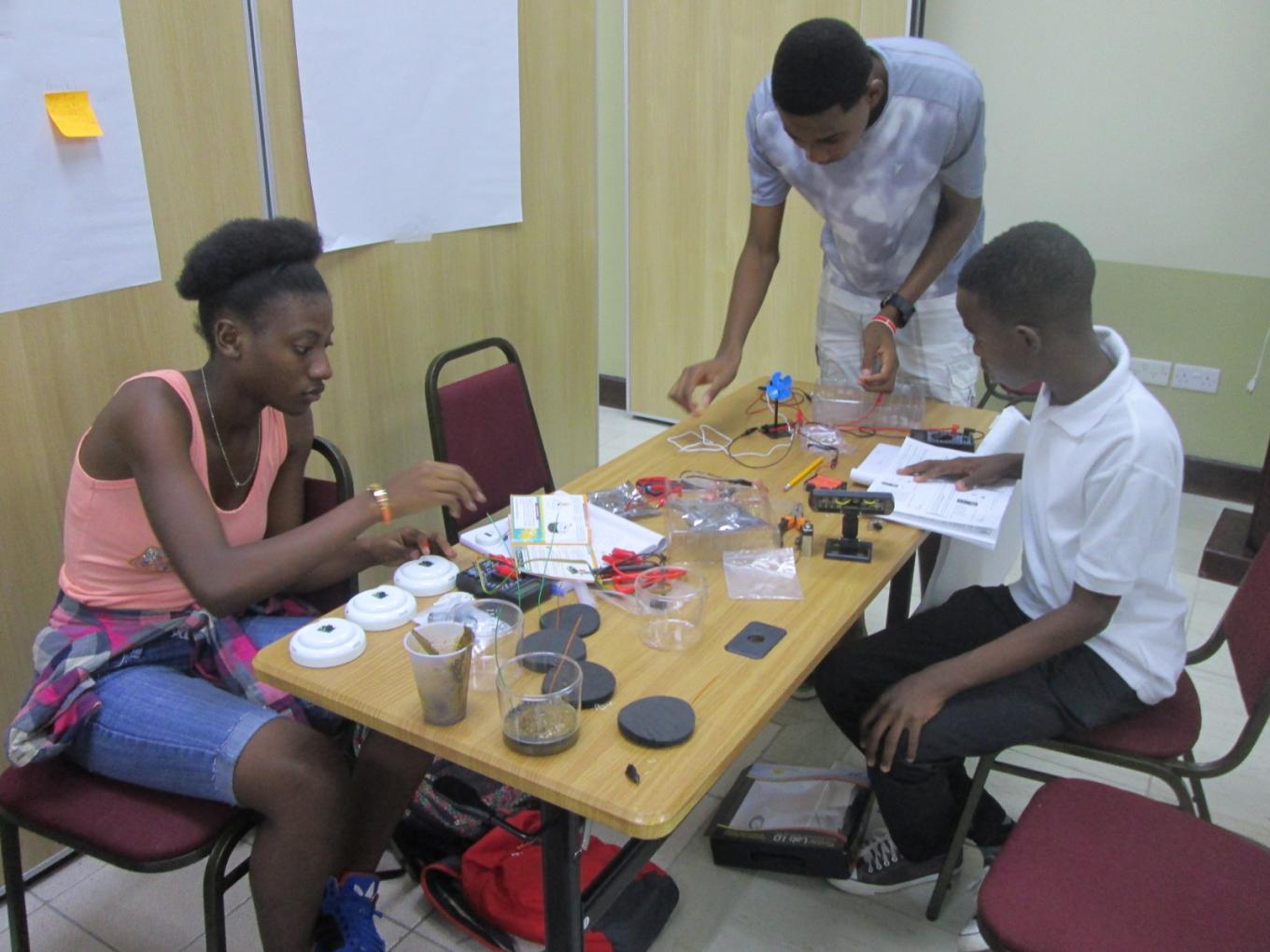IICA supports Annual National Science and Technology Camp for young people

CASTRIES, St. Lucia, August 22, 2017 (IICA). The Inter-American Institute for Cooperation on Agriculture (IICA) supported a camp aimed at developing concepts for treating with real-world energy and sustainable livelihoods challenges acerbated by a changing climate.
The theme of the event was “Science and Technology: Using Energy as a Catalyst for Sustainable Livelihoods” with primary objectives of engaging students in the experimental learning of Science and Technology and providing hands-on experience for developing capabilities in technological innovation and entrepreneurship.
“The world we live in needs problem solvers; persons capable of applying critical thinking to real-world challenges and offering feasible and locally-relevant solutions.” said Brent Theophile, IICA’s National Specialist in his remarks at the opening ceremony for the camp.
The initiative will help the IICA St. Lucia Delegation to continue partnering with the Sustainable Development Department under the theme of Climate Smart and Building Resilience, and it will support the efforts of the Ministry of Education, Innovation, Gender Relations and Sustainable Development in developing concepts or ideas to promote Science and Technology.
The agenda of the camp was designed to trigger an innovative-entrepreneurial spirit and learning in students as it relates to the science of green energy as a proactive strategy and response to climate and sustainable livelihood issues of developing countries, using a design thinking-trigger learning approach.
Camp activities also focused on building self-confidence, improving communication skills and valuing relationships as effective tools for understanding and contributing to science and technology development.
“Initiatives like this are what we need to think of if we are serious about sustainability. Not that we are committed to any one line of thought, but rather that we understand how to apply scientific principles in the search for real solutions.” stated Chaney St. Martin, IICA’s International Specialist in Water and Soil Management.
At the end of the week, students were able to design, build and exhibit miniature prototypes and concepts to address various energy, heat management, livelihood protection and disaster challenges. These prototypes focused on harnessing energy from soil, plants, humans (enzymatic biofuel cells), gravity, water, wind and the sun.
The event was attended by the Permanent Secretary in the Department of Sustainable Development and Deputy Permanent Secretary in the Ministry of Education, Innovation, Gender Relations and Sustainable Development, as well as the Representative of the Ambassador of The Republic of China on Taiwan.
The week-long camp (July 24-28, 2017) was supported with resources from the Embassy of the Republic of China on Taiwan, Renewable Energy Division of the Sustainable Development Department in the Ministry of Education, Innovation, Gender Relations and Sustainable Development and the National Community Foundation.
Chaney St. Martin, and Mario Lewis of the International Network of Innovative Partners for Sustainable Intelligent Systems (INIPSIS), were the lead facilitators for the event. They were supported by volunteers, IICA’s International Specialist in Agribusiness and Value Chains, Allister Glean; and young successful St. Lucian entrepreneurs, Jameson Alphonse (Green Haven Fresh Farm), Laurah John (Jua Kali Ltd) and Johanan Dujon (Algas Organic Ltd).
For more information, contact: